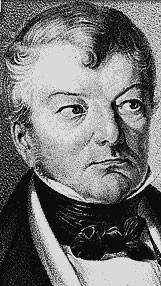A Quote by Benjamin Franklin
Nor is it of much Importance to us to know the Manner in which Nature executes her laws; 'tis enough to know the Laws themselves.
Related Quotes
In my understanding of God I start with certain firm beliefs. One is that the laws of nature are not broken. We do not, of course, know all these laws yet, but I believe that such laws exist. I do not, therefore, believe in the literal truth of some miracles which are featured in the Christian Scriptures, such as the Virgin Birth or water into wine. ... God works, I believe, within natural laws, and, according to natural laws, these things happen.
How shall we define occultism? The word is derived from the Latin occultus, hidden; so that it is the study of the hidden laws of nature. Since all the great laws of nature are in fact working in the invisible world far more than in the visible, occultism involves the acceptance of a much wider view of nature than that which is ordinarily taken. The occultist, then, is a man who studies all the laws of nature that he can reach or of which he can hear, and as a result of his study he identifies himself with these laws and devotes his life to the service of evolution.
For the religious, passivism [i.e., objects are obedient to the laws of nature] provides a clear role of God as the author of the laws of nature. If the laws of nature are God's commands for an essentially passive world ..., God also has the power to suspend the laws of nature, and so perform miracles.
The laws of Nature, that is to say the laws of God, plainly made every human being a law unto himself, we must steadfastly refuse to obey those laws, and we must as steadfastly stand by the conventions which ignore them, since the statutes furnish us peace, fairly good government, and stability, and therefore are better for us than the laws of God, which would soon plunge us into confusion and disorder and anarchy if we should adopt them.
Of crimes injurious to the persons of private subjects, the most principal and important is the offense of taking away that life, which is the immediate gift of the great creator; and which therefore no man can be entitled to deprive himself or another of, but in some manner either expressly commanded in, or evidently deducible from, those laws which the creator has given us; the divine laws, I mean, of either nature or revelation.
I know some say, let us have good laws, and no matter for the men that execute them: but let them consider, that though good laws do well, good men do better: for good laws may want good men, and be abolished or evaded [invaded in Franklin's print] by ill men; but good men will never want good laws, nor suffer ill ones.
Laws, it is said, are for the protection of the people. It's unfortunate that there are no statistics on the number of lives that are clobbered yearly as a result of laws: outmoded laws; laws that found their way onto the books as a result of ignorance, hysteria or political haymaking; antilife laws; biased laws; laws that pretend that reality is fixed and nature is definable; laws that deny people the right to refuse protection. A survey such as that could keep a dozen dull sociologists out of mischief for months.
The laws of Nature take precedence of all human laws. The purpose of all human laws is one - to defeat the laws of Nature. This is the case among all the nations, both civilized and savage. It is a grotesquerie, but when the human race is not grotesque it is because it is asleep and losing its opportunity.

































